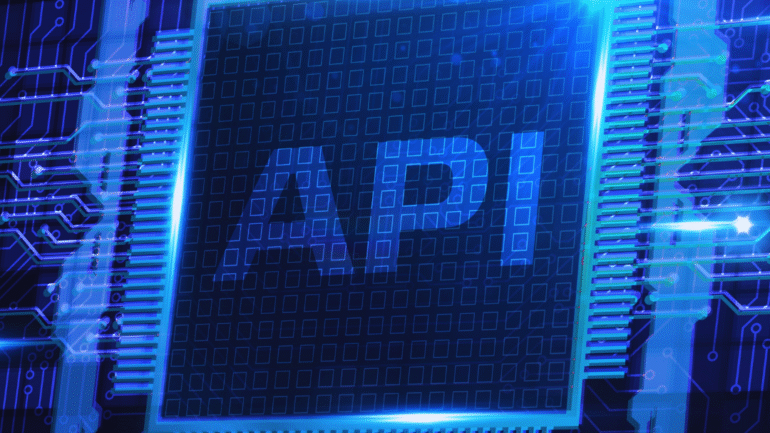E-learning is experiencing a transformation driven by advanced technology tools that enhance the learning experience. The integration of artificial intelligence, virtual reality, and adaptive learning platforms is setting new standards for how education is delivered. These innovations not only personalize learning but also make it more engaging and accessible for students across the globe.
As educational institutions and organizations embrace these technologies, the future of e-learning looks promising. Students can expect interactive environments where they can learn at their own pace and receive instant feedback. This shift allows learners to take charge of their education, fostering a sense of autonomy and motivation.
The role of educators is also evolving as they adapt to these new tools to facilitate learning. With the ability to analyze data and adapt content to meet individual needs, teachers can create more effective learning experiences. The future of e-learning, therefore, is not just about technological advancement; it’s about enhancing the educational journey for everyone involved.
Revolutionizing E-Learning With Advanced Technology
Advanced technology is transforming e-learning by introducing innovative approaches that enhance the educational experience. Key components such as artificial intelligence, emerging trends in educational technology, and cloud-based solutions play a pivotal role in shaping the future of learning.
The Role of Artificial Intelligence and Machine Learning
Artificial intelligence (AI) and machine learning (ML) are fundamental in personalizing the e-learning experience. They facilitate adaptive learning, allowing educational platforms to tailor content based on individual student performance and engagement levels.
AI can analyze data from learner interactions, identifying strengths and weaknesses. This leads to customized recommendations, ensuring students receive the right resources at the right time. Institutions are using chatbots for instant support, which enhances accessibility and learning efficiency, especially in online environments.
Additionally, AI-driven analytics provide educators with insights into student behavior trends, enabling targeted intervention strategies to improve learning outcomes.
Emerging Trends in Education Technology
Several trends are reshaping the landscape of e-learning. Gamification has gained traction, adding game elements to learning experiences, which increases engagement and motivation.
Virtual and augmented reality (VR/AR) are creating immersive learning environments. These technologies enable students to interact with 3D environments, making complex concepts more tangible. For example, biology students can explore human anatomy through virtual dissections.
Integration of the Internet of Things (IoT) into education is also significant. Smart devices allow real-time tracking of student progress, making learning more interactive and responsive.
Impact of Cloud-Based Solutions
Cloud-based solutions have revolutionized resource accessibility in e-learning. They provide storage and access to educational materials from anywhere, facilitating collaboration among students and educators.
Platforms like Google Classroom or Microsoft Teams foster communication and project management without geographical barriers.
Moreover, cloud technology supports scalability. Educational institutions can rapidly adapt resources based on demand, ensuring they meet the needs of a growing student population.
This shift to the cloud also enhances data security and management, giving institutions greater control over sensitive information.
Personalized Learning Experiences
Personalized learning experiences are becoming increasingly essential in e-learning as technology advances. By leveraging adaptive learning platforms, data-driven insights, and real-time feedback mechanisms, educators can create tailored educational pathways for individual learners.
Adaptive Learning Platforms and Algorithms
Adaptive learning platforms use algorithms to customize educational content based on individual learner needs. These systems analyze data such as student interactions, performance metrics, and learning styles.
By adjusting the pace and complexity of material, these platforms ensure that learners engage with content at an appropriate level. Features like personalized learning paths and dynamic content recommendations enhance the overall experience.
For instance, if a student struggles with a particular concept, the platform may provide additional resources or exercises targeted at that weakness. This targeted approach fosters deeper understanding and retention.
Data-Driven Personalization
Data-driven personalization utilizes analytics to tailor the e-learning experience. Through the continuous collection of data, such as test scores and activity logs, platforms can create a rich profile of each learner.
This information guides content recommendations, ensuring relevance to individual interests and goals. For example, if a learner shows a preference for interactive content over traditional video lectures, the system can prioritize engaging exercises or simulations.
Such targeted personalization harnesses learner strengths while addressing weaknesses, making the educational journey more effective and enjoyable.
Real-Time Feedback and Assessment
Real-time feedback mechanisms provide immediate insights into learner performance. These systems enable learners to understand their strengths and areas needing improvement right after completing tasks.
Instant feedback can motivate learners by allowing them to grasp concepts better and adjust their study habits accordingly. For instance, quizzes with instant grading can highlight which concepts require further attention.
In addition, adaptive assessments that evolve based on user responses ensure that learners are continuously challenged at an appropriate level. This responsive approach not only enhances learning outcomes but also facilitates a proactive learning environment.
Enabling Lifelong Learning and Professional Development
Advanced tech tools are transforming how individuals engage in lifelong learning and develop professionally. Digital platforms facilitate accessible upskilling and foster networking opportunities, allowing learners to grow in their careers.
Upskilling Through Digital Certification
Digital certification programs offer efficient pathways for individuals to acquire new skills. These certifications are often created in partnership with industry leaders, ensuring that they remain relevant and aligned with market demands.
Individuals can choose from various online courses spanning diverse fields, including data science, digital marketing, and project management. Many platforms provide micro-credentials, which allow learners to earn recognition for specific skills gained through targeted training.
Completion rates for online certifications tend to be higher, driven by flexible learning schedules. This accessibility empowers professionals to balance their work commitments while pursuing continuous education.
Collaboration and Networking Tools
Collaboration tools play a crucial role in professional development by enhancing communication and knowledge sharing among peers. Platforms like Slack, Microsoft Teams, and Zoom enable real-time interaction, fostering a sense of community among learners.
These tools support group projects, discussion forums, and webinars, making it easier for individuals to connect with mentors and industry experts. Networking opportunities can lead to potential job openings and collaborations, enriching the learning experience.
Additionally, virtual networking events, enabled by these platforms, allow participants to expand their professional circles regardless of geographical constraints. By leveraging these technologies, individuals can gain insights into industry trends and best practices.





